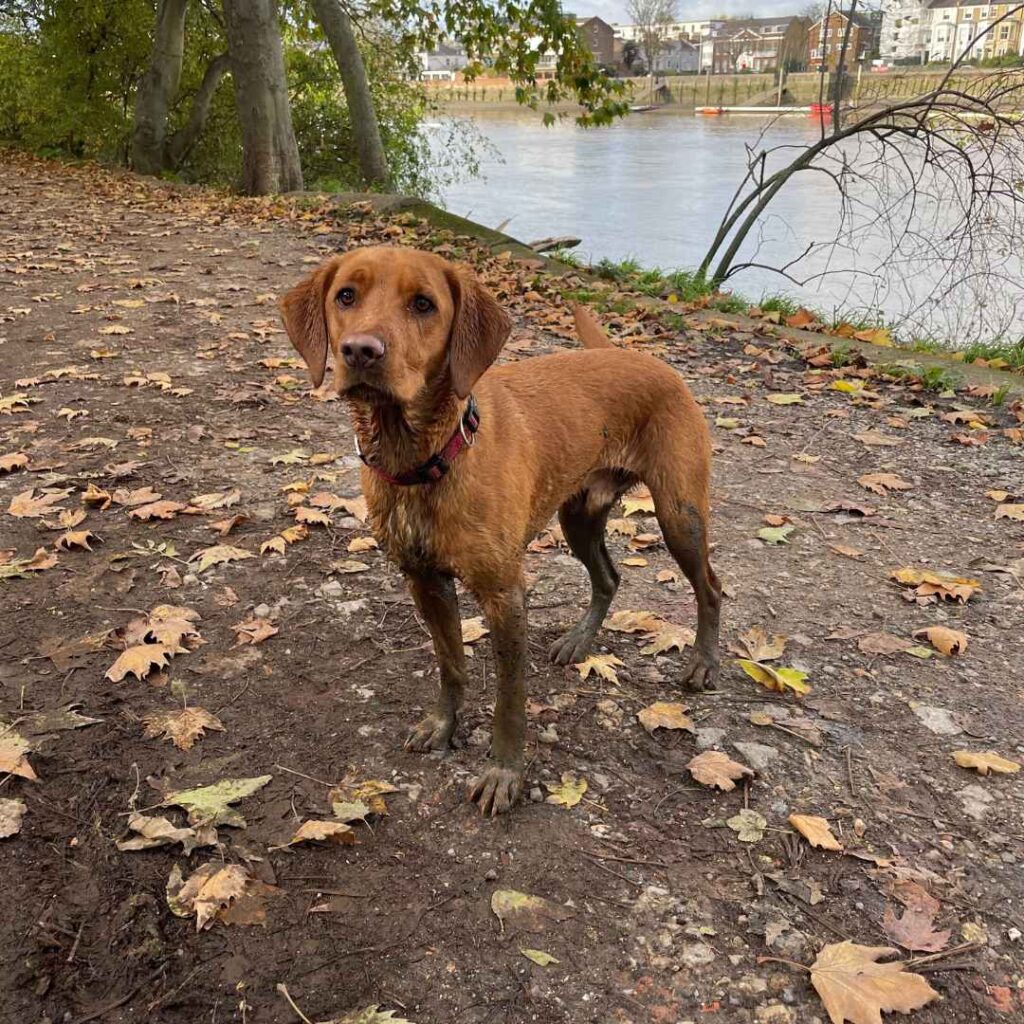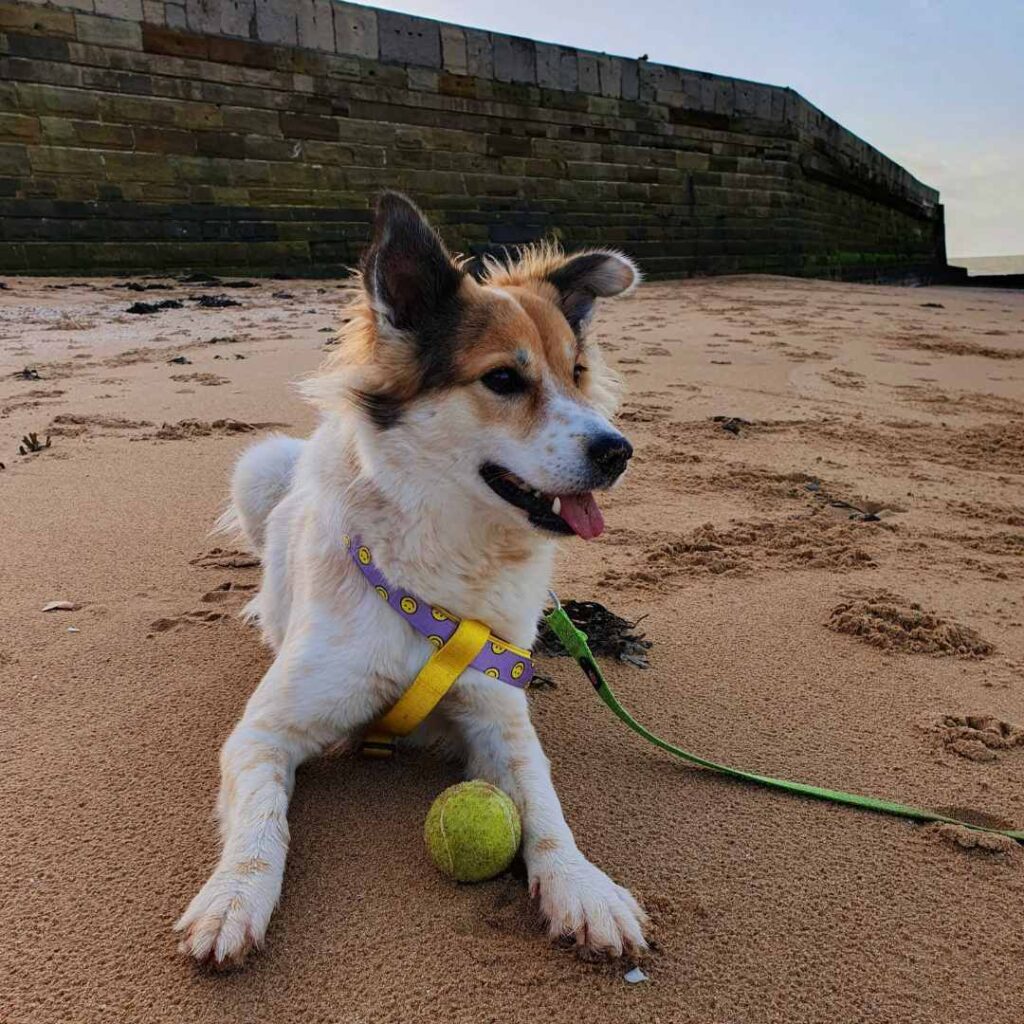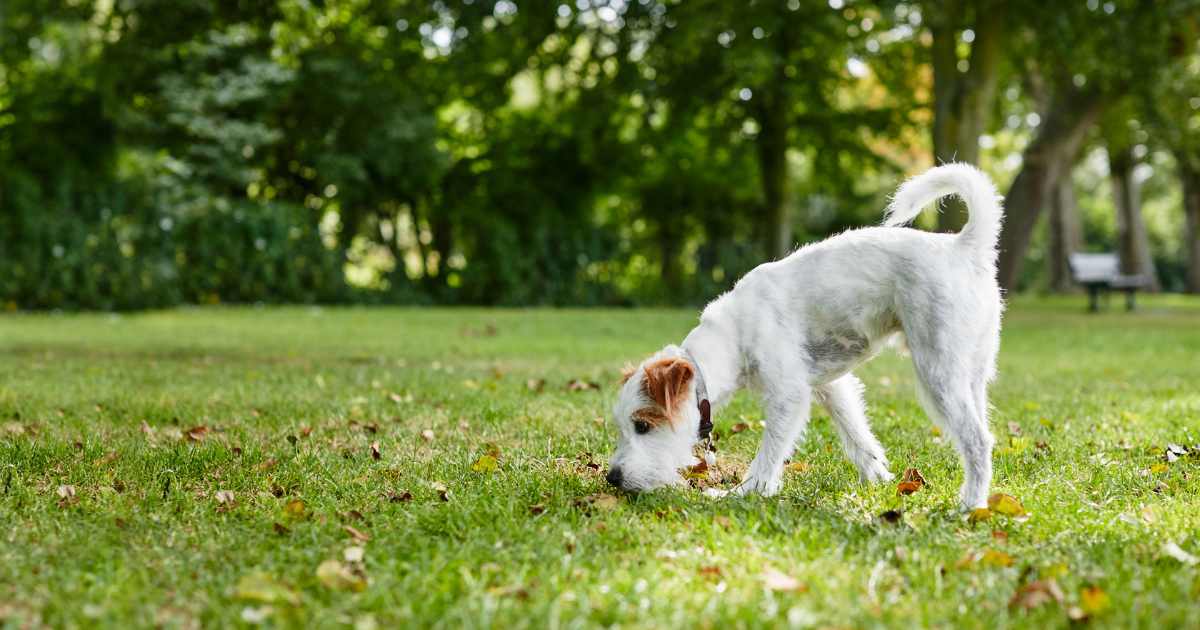Recall is the most important training command you can teach your dog. If you’re here, you probably already know that and might be having some challenges with an adolescent pup. Don’t worry, if your dog’s going through the teenage phase and seems to have lost their recall, I’m here to help.
Last month I wrote about adolescense in dogs, and what the teenage phase is. And it seems like that struck a chord with a lot of people and their troublesome teens! Maybe that’s because it seems to be the bit of dog ownership that doesn’t get talked about much.
You can find plenty of information on how to bring up your puppy and teach all the early life skills and basic training exercises. There’s also lots to be found on what to do with your adult dog to take your training and play to the next level. But there’s a lot less info out there to help those with dogs going through that teenage period.
How does the teenage phase impact recall training in dogs?
Nowhere are the terrible teens more in evidence than when it comes to recall training with your dog. Suddenly your beautifully behaved puppy who never wandered far from you on your walks and used to whizz back to you enthusiastically when called, is acting different. Vanishing off to talk to other dogs or people, wandering off into the undergrowth, feigning deafness or just pretending they don’t know you no matter how many times or how enthusiastically you call them.
Sound familiar? Well first of all, don’t panic. Regression in recalling training is very common, and happens with many, possibly most, teenage dogs.
They’re not deliberately being a pain to wind you up, I promise! The change might seem sudden, especially when your dog’s recall training has been impeccable before. But it’s actually part of a natural developmental phase, where they’re exploring their own independence and reassessing the world from that point of view.

What does this look like?
Human toddlers go through the “terrible twos” and teenage years. In both, there’s a lot of “shan’t” and “won’t” and “no” – they’re exploring their own autonomy, and can get frustrated if something gets in the way. Your dog and their recall training are quite similar.
This can feel frustrating on both sides. Their growing desire for independence puts them at odds with your idea of appropriate behaviour – and your previous training success! But does explain their desire to investigate new sights and smells, and try some new behaviours – like running up to other dogs and people.
This developmental period of reassessment, growing independence, and exploration takes quite a lot of brain power. Pair that with a time when hormones are high and self-control is low… Their judgment can be dubious. Listening to you at the same time is often just a step too far for the canine teenage mind. So, if it seems like they’re ignoring you… They are.
They’re not being naughty or stubborn, however, they just don’t have enough brain space for everything that’s going on. And unfortunately you’re probably the least interesting thing amongst all this novelty.
Rest assured – this isn’t permanent. Being understanding and dealing with this phase sensitively and sensibly, will help your dog come out the other side with their recall training intact!

Top tips for recall training in teenage dogs
- Start from the beginning. No matter how good your puppy’s recall was, go right back to the beginning again with your teenage dog.
- Keep distractions to a minimum. Walk in quiet places and at quiet times of the day where you can.
- Up the value of your treats. Coming back when you call (with all the things going on in the teenage brain) deserves high value rewards. Plus, an adolescent has low frustration control and needs to feel they’re succeeding – so don’t just reward better, reward more too.
- Use toys as motivation and rewards. If your dog is toy focussed, take a toy you know they love (maybe something that squeaks) so you can play games while you’re on your walks and maintain their interest.
- Focus on your dog. Try to stay off your phone and look at your dog. If you’re not focused on them, they’re unlikely to be focused on you.
- Don’t let recall become a multiple-choice question. The more your teenage dog ignores your recall command, the more likely they are to carry this habit into adulthood. Remember the more a dog repeats a behaviour, they better they get at it – even when you don’t want them to! During adolescence, keep your dog on a harness and a long line in places you’d usually let them off the lead. This means they’ll stay closer to you – and when you call them back, you can gently guide them in if you need to before giving them a really tasty reward (even if it wasn’t entirely their idea to come back!). A long line will also prevent them running up to other dogs they don’t know. This is important as they’ll no longer get the ‘puppy privileges’ most dogs give baby dogs, and so they can often get told off – especially if over-exuberant – which can create a lasting dog to dog behaviour issue.
- Make recall games fun again. Exactly as you did when they were a puppy – loads of excitement, fuss, attention and reward. Let them know they did a good job!
And finally, stay patient – and keep your sense of humour! It does end and keeping your dog’s trust through this crazy time will seal your bond for life.


A really helpful article which has helped to reinforce the advice from our trainer.